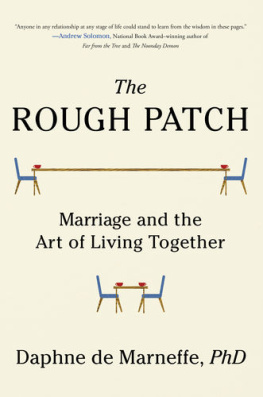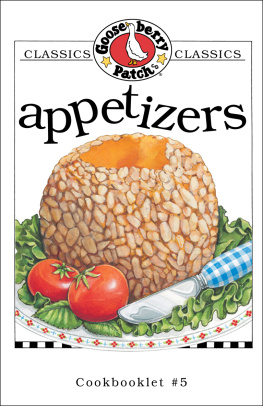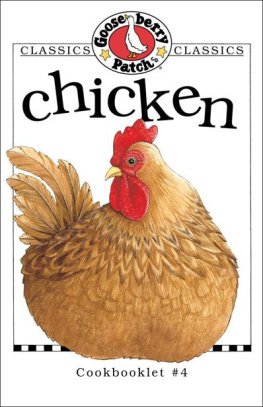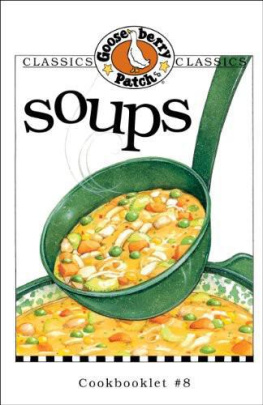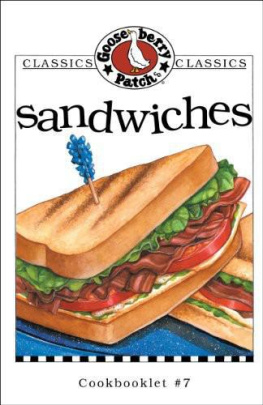Thank you for downloading this Simon & Schuster ebook.
Get a FREE ebook when you join our mailing list. Plus, get updates on new releases, deals, recommended reads, and more from Simon & Schuster. Click below to sign up and see terms and conditions.
CLICK HERE TO SIGN UP
Already a subscriber? Provide your email again so we can register this ebook and send you more of what you like to read. You will continue to receive exclusive offers in your inbox.
For Terry
Authors Note
I n this book, I illustrate ideas with stories drawn from my experiences as a therapist, teacher, and interviewer. Ive changed all names and identifying information to protect the confidentiality of the people who have sought my help and the privacy of those I have interviewed. I hope that readers recognize themselves in these pages, but any resemblance to actual persons is coincidental.
The ideas in the book represent my synthesis of an enormous body of research on couples, emotion, and human development. For the sake of readability, I rarely cite specific studies and authors in the text, but I encourage readers to consult the notes for sources and further information.
1
The Rough Patch: An Introduction
Y ou are forty-three. You have been married twelve years. You didnt marry too young. You had your adventures and your choices. You now have two little girls (ten and seven), or two little boys, or one of each. You were in love when you married. Thats what youve always believed, at least, although now sometimes you wonder. You knew you were different from each other, but at the beginning that was fineit helped you feel stable, or it helped you grow, and it was even exciting, as you noticed how much you wanted to reach out and understand and even indulge each others differences. Yet now you feel too different. Sometimes you drive each other crazy. Or leave each other feeling deeply hurt. Or kind of neutral. Or each of these, at different times.
A lot of advice is out there to help you deal with the problem. Social scientists tell you that people are happier at sixty-five than forty-five, so if you wait it out another twenty years, you might feel better. The couple specialists, the work-family balance people, the sex and intimacy experts, all have something to say that almost fits. But somehow they dont get at the crux of the problem. The crux is that you feel lost, or lonely, or at times almost blindingly miserable. Sometimes you feel you cant breathe. Its true that youre exhausted at work, or your mothers ill, or your hormones are out of whack. But its hard to believe that thats the whole story. You didnt always feel this stuck in your relationship. There was a time when the marriage made sense.
What changed? And why? Perhaps you felt fine about your marriage, until you surprised yourself by becoming infatuated with someone else. Or maybe you were absorbed by the care of your kids when they were small and didnt give much thought to your personal satisfaction. But now your older daughter/son spends time texting her/his friends (how did that happen so quickly?) and doesnt seem interested in being around you on the weekends. Even if the child-centered marriage didnt foster much passion, at least it provided a meaningful framework. Now things are shifting. What felt tolerable before doesnt anymore. You are left wondering, where am I in all this? Who have I become?
Its not quite fair, but you cant help blaming your partner for how dissatisfied you sometimes feel. Its hard to imagine putting up with her/his workaholism/drama/withdrawal/insensitivity for another few decades. Yet you know feeling this way is wrong somehow. Marriage takes work. Immature people think relationships should be easy or fun; selfish people leave when the going gets rough. Youve always been a good worker; youre great at work. But its not clear what you are working for. Deep down, you arent sure things can change. And the truth (shameful and hard to utter) is that sometimes you feel youre not sure you want things to change anymore. You dont want to have to work so hard for whatever incremental satisfactions you might gain. Occasionally you feel a whiff of freedom, and it is shockingly exhilarating. You feel guilty about it, but on the other hand, you are still youngish. You deserve to have some intimacy and passion and real connection in your life. You wont have your energy or looks forever. How long is it reasonable to go on like this?
But you dont want to make any destructive decisions. Thats the path your sister/uncle/best friend took, and look where it left them. The kids, lets face it, suffered. Shuttling back and forth between houses, forced to witness their parents heartaches at way too close a range, and no money saved for college. And the adults imported their same old problems into the next relationship. Lately, though, you find yourself calling to mind the success stories: the kids who seem to have emerged unscathed, and the parents who seem so much happier, like new people. Still, you dont want to divorce. It would be easier, better, if you could find a way not to be so unhappy in your marriage. Or maybe not to be so unhappy, period.
* * *
THE ROUGH PATCH. Lonely. Confused. Stuck. Stirred up. Going through the motions. Falling apart. I see a hitting-the-wall unhappiness in the middle slice of life, when people struggle, alone or in pairs, to figure out why their marriages dont feel right. In my work as a therapist, I am reminded every day of peoples conundrums:
Is my problem that I need to find a way to resuscitate some loving feeling toward my partner? Or is it my own harsh insistence that I shouldnt give up?
I know I should think about my predicament, but Im so sick of thinking. I just want to feel for a change.
I know my infatuation with my coworker is a fantasy, but why does it feel like the most real thing in my life?
Reminding myself how grateful I should be for what I have just makes me feel worse.
Can I, or should I, spend the rest of my life with minimal affection or sex?
Can I, or should I, keep living with my partners substance use/spending habit/mental illness?
My partner is withdrawing from me but I dont know if I can, or want to, change in the ways (s)he wants me to.
If my greatest goal is to give my children a happy childhood, how can I do that if I am unhappy in my marriage? Yet what if trying to find more happiness for myself comes at the expense of theirs?
People who seek my help often feel they are caught between what they should do and what they feel . When I spoke with Lisa, a professional, she had just turned forty-seven, and she struggled with the sound of it. I never felt middle-aged. Then I turned forty-seven. Its a number that sticks in my mind. Forty-seven is a big deal. Fifty is a big deal. Why? I feel like I should have figured it out by fifty. She hadnt figured it out; she felt more confused than ever. Feeling exhausted from work, parenthood, and family life, and alienated from her husband of fifteen years, she found herself acting entirely against her values, embarking on an affair with a younger man. I was shocked to be with someone I was excited abouttexting and calling someone I can communicate with, without the burden of all the family stuff. My physical relationship with my husband is dismal, and I sort of chalked it up to the inevitable effect of aging. Whats funny is this guy reminds me of my husbandsmart, professionalbut ten years younger. Now Ive really become a middle-aged clich: almost fifty, in a rut in my marriage, finding someone young and exciting...
I am struck by how often people try to dismiss their marital distress as clich, embarrassed to have fallen prey to the midlife crisis, a construct toward which they felt, until recently, comfortably disparaging. Were voyeuristically critical toward middle-age flameoutsShes divorcing him and marrying their tenant! He ran off with a lap dancer and now hes bringing her to the kids soccer games!partly to protect ourselves. We feel vulnerable to lifes surprises and attempt to fortify ourselves through the communal conviction that people should be more grown-up. Finding ourselves susceptible to feelings that we so recently judged as selfish or immature in others is a rude awakening, especially destabilizing when we felt, not so long ago, pretty confident and successful about our choices.
Next page

